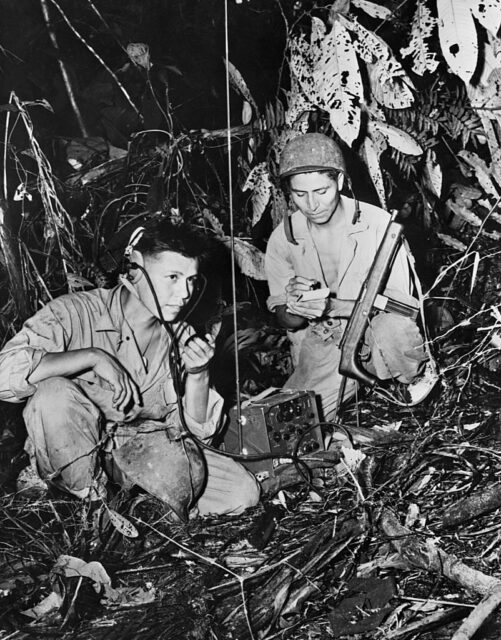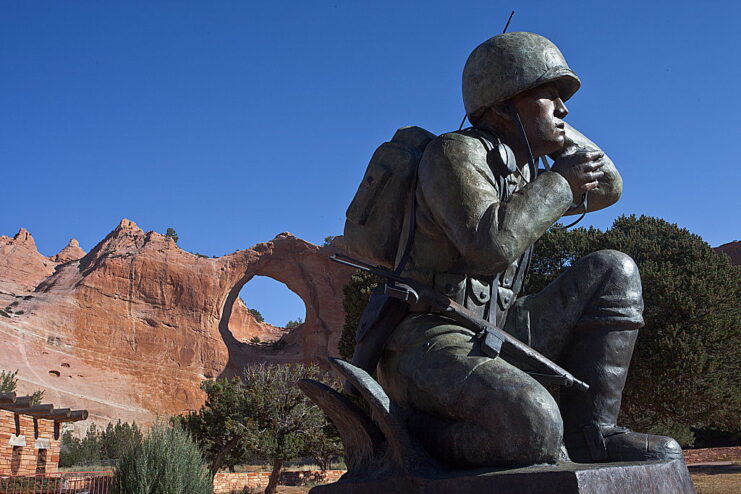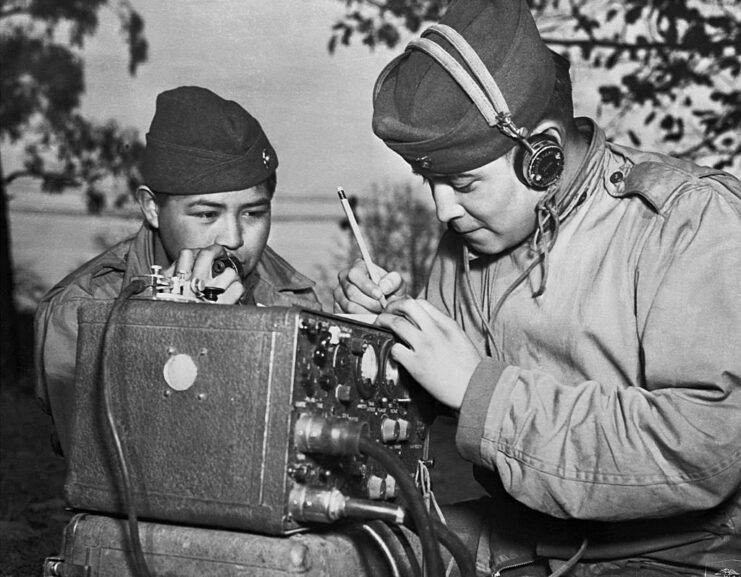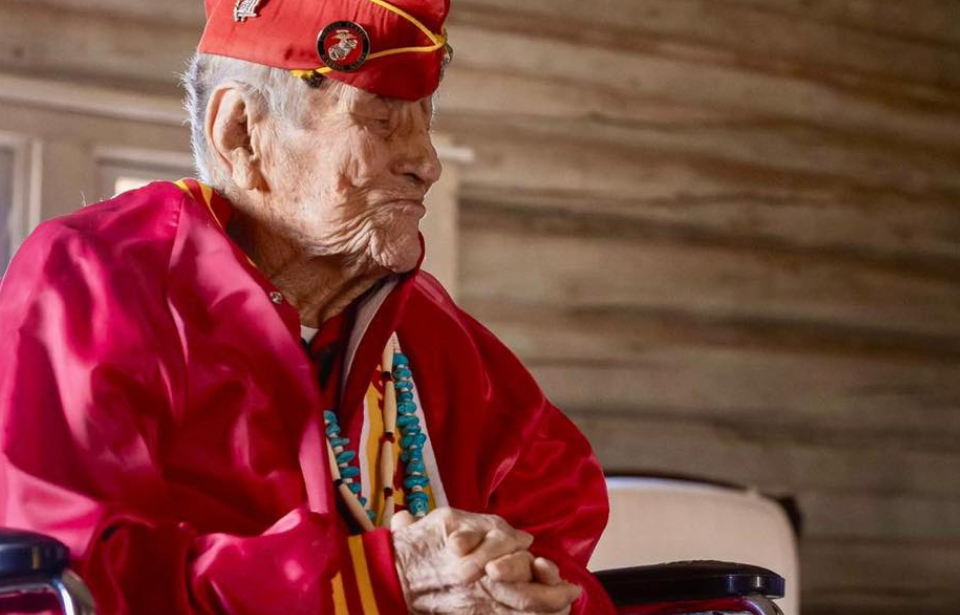One of the last surviving Navajo code talkers has died. The passing of 107-year-old John Kinsel, Sr. on October 19, 2024, was announced in a post on social media, which paid homage to his legacy as one of the 400 code talkers to have served overseas during World War II.

Kinsel’s death was announced by his son, Ronald Kinsel, who wrote, “Cheii passed early this morning in his sleep. The howling wind brought his parents and relatives that came for him early dawn today. He used to keep asking if it snowed yet. He was waiting for the first snow to take his spiritual journey. Moisture lifted his footprints this morning. He lived a very long, full and accomplished life.
“What he and the other Code Talkers accomplished changed the course of history, and will always be remembered, and I will continue to tell his legend and greatness,” Kinsel concluded.
No cause of death was provided.

Serving in the US Marine Corps from October 1942 to January ’46, Kinsel was part of the second group of Marines to be trained as code talkers. After completing boot camp, he underwent instruction at Camp Elliott, California, and in New Zealand with 25 other recruits, and was given the chance to work alongside a number of the original 29 code talkers to further develop their code.
Over the course of the Second World War, over 400 Native Americans served as code talkers, using their native language to pass information without fear of it falling upon enemy ears. Their code was never broken, and it played a major role in the Americans’ success in the Pacific. To put their skill into perspective, they could translate three lines of English in just 20 seconds, compared to the 30 minutes it took codebreaking machines.
Their work remained a secret until 1968, when the US military declassified their records.
After completing his training, Kinsel and his comrades were deployed to the Pacific, where they used their code to confuse the Japanese, relay important information and keep Allied movements under wraps. Kinsel was assigned to the 9th Marine Regiment, 3rd Marine Division, and while never deployed to the frontlines, took part in action at Bougainville, Guam and Iwo Jima.
While participating in the latter engagement, Kinsel was wounded when the Japanese bombed the area where he and his group were positioned. The blast threw him against a tree and a boulder fell on his leg, causing his shin to break. After a decades-long delay, he received the Purple Heart in April 1989.
Kinsel was honorably discharged with the rank of corporal in January 1946. For his service, he received the Congressional Silver Medal in 2001.

In a statement, Navajo Nation President Buu Nygren said, “Mr. Kinsel was a Marine who bravely and selflessly fought for all of us in the most terrifying circumstances with the greatest responsibility as a Navajo Code Talker. He fought alongside his brothers in arms, for the U.S. Marine Corps, for the United States and to protect the Navajo Nation in a time of war.”
In a separate press release, Crystalyne Curley, the speaker of the Navajo Nation Council, said, “Beyond his legacy as a warrior, he was also a proud Navajo man who upheld the values of his heritage while serving his country with distinction. May his spirit rest in peace, and may his memory continue to inspire generations to come.”
More from us: Tiger 131 Returns to Action After Undergoing Engine Overhaul
Want War History Online‘s content sent directly to your inbox? Sign up for our newsletter here!
There are just two Navajo code talkers who are still alive, Thomas H. Begay and Peter MacDonald.
